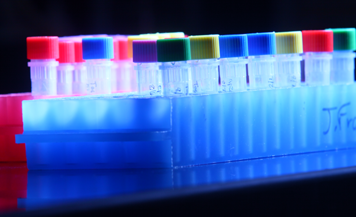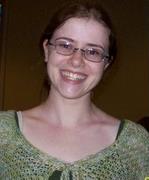IGP Offers Students Flexible Path for Pursuing Scientific Interests While Earning PhD
 |
The Integrated Graduate Program in the Life Sciences (IGP) at Northwestern University Feinberg School of Medicine has trained graduate students in both basic science and clinical research for twenty years.
The IGP offers students an integrated, interdepartmental PhD education in ten distinct areas of specialization: cancer biology, cell biology, developmental biology, drug discovery and chemical biology, evolutionary biology, immunology and microbial pathogenesis, molecular biology and genetics, neurobiology, pharmacology and toxicology, and structural biology and biochemistry.
The program is comprised of 145 faculty members from 15 departments of the medical school who devote their considerable research and teaching expertise to ensure that Feinberg students are well prepared for careers in science and medicine.
“IGP faculty share a dedication to preparing the next generation of scientists,” says William J. Karpus, PhD, Marie A. Fleming Research Professor, professor of pathology and microbiology-immunology and director of the IGP. “These individuals are also devoted to their research and to making scientific discoveries that will impact the health and well-being of our society for decades to come.”
 |
| Fourth year IGP student Amber jolly studies in the gelfand lab, where she focuses her training in cellular biology. |
Currently, there are approximately 200 students in the IGP working toward their PhD — a five year commitment, on average. All students fulfill the required core curriculum before taking courses that are tailored to their individual research and academic interests. In addition to coursework, each student completes three research rotations in laboratories — eventually selecting the lab where they will finalize their research project – publishes at least one first author, peer-reviewed, original research paper, and completes a written dissertation to earn the PhD degree.
Over the course of their tenure, students acquire writing and presentation skills and participate in a number of training activities, such as research poster presentations, journal clubs and research seminars. Most students also present their research at local, national, and international meetings and conferences.
“We aim to attract the highest quality graduate students and provide them with the best educational and professional development opportunities so they can be successful scientists in their chosen careers,” Karpus says.
The majority of IGP graduates complete postdoctoral research in either academia or industry and eventually pursue careers as either university faculty members performing basic science, translational and/or clinical research; university faculty members teaching undergraduates; principal scientists at pharmaceutical or biotechnology companies or government laboratories; patent law or financial analysts; or consultants.
| THe program allows students to pursue their outside interests. christopher heier, in his sixth year, served as a member of the chicago graduate student association and planned speaker symposiums. |
Amber Jolly, an IGP student in her fourth year, earned a bachelor’s degree in biochemistry with a concentration in global development studies before coming to Feinberg to focus her training in cellular biology. Jolly studies in the Gelfand lab under the instruction of Vladimir I. Gelfand, PhD, D Sc, Leslie B. Arey Professor, Department of Cell and Molecular Biology.
Jolly chose Feinberg for the interdisciplinary IGP curriculum and the tight knit Feinberg research and educational environment.
“I value the intimate and collaborative culture of the program,” she says.
Sixth year student Christopher Heier says Feinberg develops well-rounded scientists. During his time at the medical school, he has enrolled in a certificate program on Management for Scientists and Engineers through the Kellogg School of Management, participated in interdisciplinary fellowship and training grant programs, served as a member of the Chicago Graduate Student Association, and planned speaker symposiums.
“Looking back now, I am very happy with my choice to come to Northwestern. It has been a great experience both for the education I received and the relationships I formed, and as I am preparing for graduation I feel very prepared to take the next exciting step in my career,” Chris says.
For more about the program, please visit the IGP web site.






